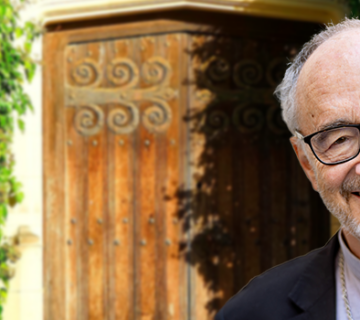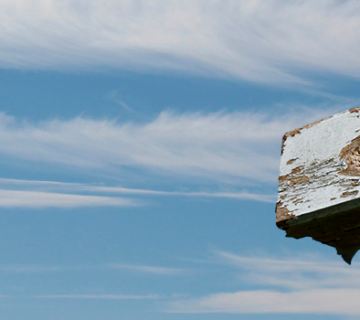Life has become hard for people in many places in Syria: bombings and conflict, fear, rising food prices, scarcity of gas for cooking. It is possible to leave the house, but life has been slowed down by fearful roadblocks. Many Christian families are tending to escape to Lebanon, at least for the time being.
They tell us from Syria: “We were already hoping for a peaceful resolution in November 2011, but things gradually dissolved into the state of affairs that we have today, the country gripped by violence with unforseeable and certain diastrous consequences. For us who believe in a united world it is quite painful to see the lack of any real will for finding a political and diplomatic solution. Right from the beginning of the events we realized, together with many other people in the country, that the priority wasn’t the one acclaimed by many newspapers and Arab and Western satellite news channels: pluralism and freedom but a game of power that is destroying the country at every level, a country known for the way people of diverse confessions have lived together in peace.”
From the first disturbances and disorientation the members of the Focolare Movement saw “the fruits of the Gospel life that has been sown over the decades and the total communion in and among the various communities spread throughout the country. “This trial that our country is living through,” they go on to say, “has brought us back to what is essential in our relationship with God, with the Word and with the people around us. It has manifested itself in a growing effort to depend on Him.”
Believing in God’s love, being attentive and in an attitude of giving ourselves to the needs of the people around them is the modus vivendi for both young and old. The vitality that is found among the young people is quite striking. The Movement’s youth in the city of Aleppo distribute free meals to poor families. They have also begun a support drive among their friends and families, so that they can provide regular food and basic supplies to people in need. Some of the Focolare’s Gen3 (children) have prepared and sold snacks to students who regularly go to the parish library in order to study for their university examinations. The small children, the Gen4, gather and sell bottle caps. The young people from Damascus have held cineforums and meetings in which they try to spread the culture of peace and brotherhood. When the first refugees began to flow into the gardens and schools of the city, youths from the Focolare and others immediately did everything they could to meet their needs.
A series of difficulties had begun for engineer Walid and his wife Sima regarding the contract on their house, the car payments that had to be made and the children’s school fees. We began to be invaded by fear”, they recount, “as we saw that we would eventually lose the house, and Walid had already lost his job. But we gained courage by believing in God’s love, knowing that He would intervene at the right moment. The nex day, in fact, some help arrived for us in the form of some money that corresponded to the chidren’s school fees.” Another family who were left without anything also received help from the villagers. “They offered us everything that was lacking in our house,” Mariam and Fouad recount, who had not seen a paycheck on four months, “even a carpet and a television.”
Just the same, the difficult situation also instilled a lot of mutual fear and mistrust, and everyone looked at everyone with suspicion. Our attitude of building fraternal relationships with everyone went against the current. This is what Rima experienced who works for a project in support of Iraqi women professionals. One day a woman showed up to enroll in the course. Her attire –totally veiled – cautioned prudence. She could have generated suspicion among the other members of the course. With another excuse I found a way not to enroll her, but then a more powerful thought entered my mind: “Jesus loved everyone and came to save everyone without exception. We should also have the same love that doesn’t make distinctions.” And so she did everything she could to trace the woman down and enroll her in the course.
Fahed is a taxi driver. “Now, working is a challenge and a source of growing stress. One day an old Muslim man began cursing against a bombing attack which, in his opinion, had targeted a mosque. I listened to him attentively, then I tried to comfort him saying: “Don’t be saddened, because houses for God can only be built by God.” Four months later the same man got into my taxi, but he didn’t recognize me. During the drive he confided to me that he had been so struck by one of our Christian “brothers” who had said to him that only God can build His houses.”
Youssef is a young gynecologist. Amid the anger of the first disurbances in the country, he at once placed himself at the service of the wounded, going out to assist them where they were. His unusual decision to care for patients of all confessions, at the risk of being misunderstood turned out to be a seed of reconcilliation. A network of medical workers was created around him, who sought to heal both physical and the non-physical wounds as well.
Then there was that young professor who had been recruited by the army a year earlier. Prayer, unity with the other young people who lived the Christian ideal, and his decision to offer his life to God were his daily support, even when it was his duty to go and inform the famlies of fallen soldiers.
Mona is a young woman who fled with her family to a village near the city. Several months earlier she has returned to the city to offer her help at a Centre run by a religious Order that helps children of all confessions to make up school work and, most especially, to recuperate the desire to go on living.
“In my quarter,” recounts Bassel, “just after the first manifestations, real and strong attacks began against the police. Many times, closed in our houses in order to find protection from the bullets that were flying all around us, we grasped the Rosary in our hand, convinced that Our Lady would have protected us. Recalling the power of a prayer said in unity, with a friend we began having the “Time-Out” at eleven in the evening, which is when the clashes usually began. Many people joined us. In spite of it all, we continued to believe that in the end, armed weapons would not have the final word.”


 Italiano
Italiano Español
Español Français
Français Português
Português



Dialogo, testimonianze, esperienze di vita vissuta…. tutto bello!
Ma io chiederei che si facesse un po’ più di INFORMAZIONE, che qualcuno ci spiegasse che cos’è questa guerra, chi c’è dietro questo conflitto Siriano, che ruolo hanno le super potenze, chi sono i ribelli. Perchè chi vive in quei luoghi e conosce meglio la realtà delle cose non ci dice qualche verità in più?
Possiamo fare qualcosa, come Movimento dei Focolari nelle sue articolazioni e competenze, per essere vicini concretamente al popolo siriano e mostrare la “strada di pace e solidarietà” che viene fuori da queste “straordinarie” esperienze? Il GenFest è prossimo ed altre significativi momenti ci saranno nel prossimo anno, ma adesso c’è l’ora presente che ci chiama a dare una risposta -quella possibile- alla tragedia di un popolo. Nino G.